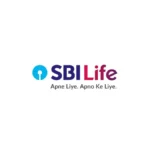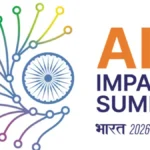UGC’s New Directive “Mulya Pravah 2.0” for Ethical Education in India
The University Grants Commission (UGC) recently introduced “Mulya Pravah 2.0,” a groundbreaking directive aimed at incorporating ethical education into the academic curriculum across Indian universities. This initiative marks a significant step toward fostering moral values and integrity among students. The directive emphasizes the importance of instilling ethical principles to shape responsible citizens, especially in fields crucial for the nation’s development.

Why this News is Important
1. Elevating Ethical Standards in Education: The introduction of “Mulya Pravah 2.0” is a pivotal move to enhance ethical standards within the education system. This initiative recognizes the role of universities in shaping not just knowledgeable professionals but also individuals with strong moral values.
2. Nurturing Responsible Professionals: As students prepare for various government exams, the incorporation of ethical education becomes crucial. Government positions, including teachers, police officers, and civil servants, demand individuals with a strong sense of responsibility and ethics. This directive aims to produce professionals who contribute positively to society.
Historical Context
The introduction of ethical education by UGC builds upon the ongoing efforts to revamp the Indian education system. Historically, education in India has focused primarily on academic excellence, and ethical considerations were often relegated to the background. With the changing societal landscape and the recognition of the importance of ethics in various professions, “Mulya Pravah 2.0” emerges as a progressive step to align education with evolving needs.
Key Takeaways from “Mulya Pravah 2.0”
| Serial Number | Key Takeaway |
|---|---|
| 1. | Ethical education is now a focal point in university curricula. |
| 2. | The directive aims to produce professionals with strong moral values. |
| 3. | Aligns with national development goals for a responsible workforce. |
| 4. | Encourages a holistic learning environment for students. |
| 5. | Addresses contemporary challenges by integrating ethical considerations. |
Important FAQs for Students from this News
Q1: Why is ethical education becoming crucial in the context of government exams?
A1: Ethical education is essential for government exams as it shapes individuals into responsible professionals, a prerequisite for various positions like teaching, policing, and civil services.
Q2: How does “Mulya Pravah 2.0” contribute to holistic learning?
A2: “Mulya Pravah 2.0” ensures a holistic learning environment by seamlessly integrating ethical education into existing academic structures, preparing students for both professional challenges and ethical dilemmas.
Q3: What are the key takeaways for students preparing for government exams?
A3: Key takeaways include the focal point of ethical education in curricula, the aim to produce professionals with strong moral values, alignment with national development goals, encouragement of a holistic learning environment, and addressing contemporary challenges.
Q4: How does the directive align with the historical context of Indian education?
A4: The introduction of “Mulya Pravah 2.0” builds upon historical efforts to revamp the education system, emphasizing the evolving need to incorporate ethical considerations in various professions.
Q5: Can ethical education in government exams enhance decision-making skills?
A5: Yes, ethical education equips candidates with the ethical acumen required to navigate complex situations, contributing to improved decision-making skills.
Some Important Current Affairs Links

















